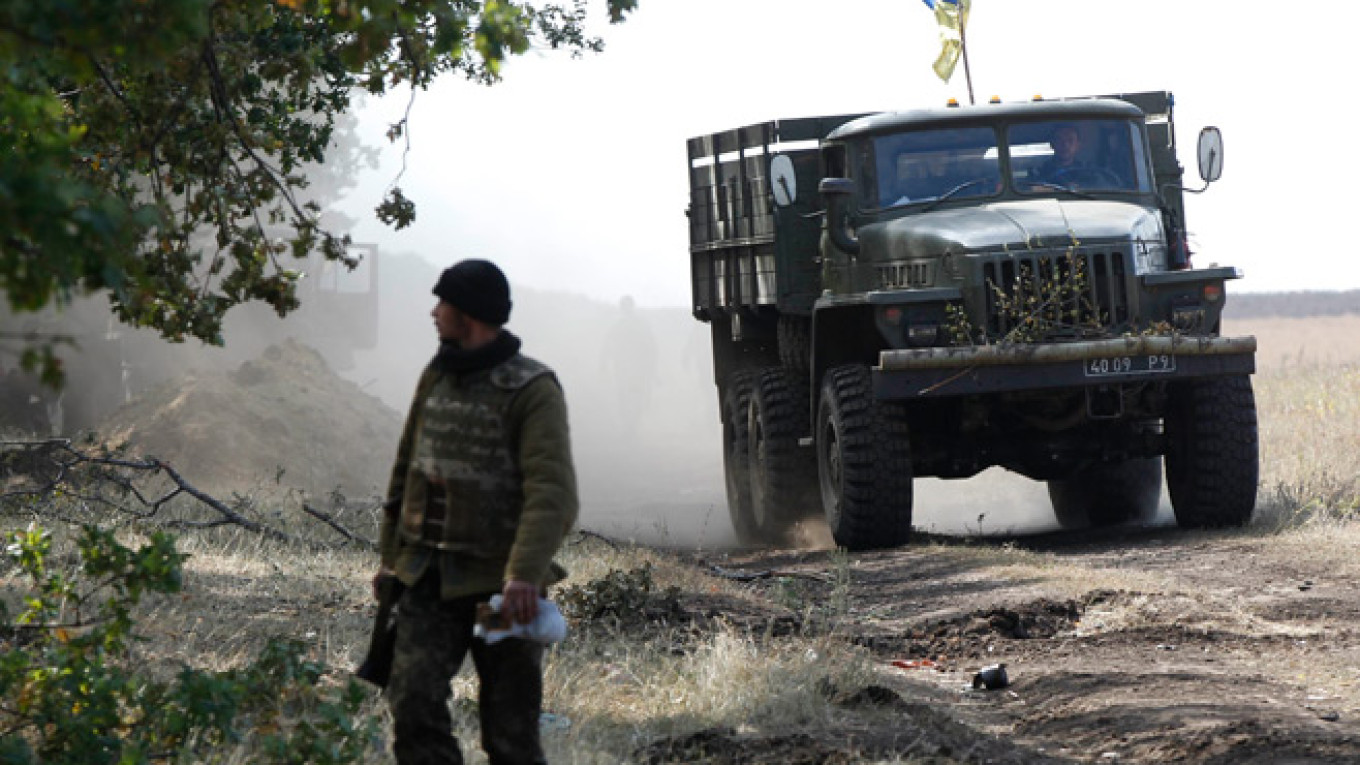One of the most awe-inspiring aspects of the Euromaidan revolution was the unity of diverse people in support of democracy. In a stark repudiation of Russian accusations that the country was being seized by neo-Nazi fascists, people of different ethnicities, faiths and languages came together to take a stand against a government unresponsive to the population.
Amid all the bad news out of Ukraine, the crisis raised hopes that the country could move beyond the interminable cultural tensions that distract from the true issues it faces: corruption, a collapsing economy, a weak legal system, etc.
So the recent news that 57 deputies of the Ukrainian parliament successfully petitioned the Constitutional Court to open proceedings on the constitutionality of the country's 2012 language law should elicit a collective groan from everyone who hopes to see a peaceful, stable and democratic Ukraine.
The 2012 language law allows for official bilingualism in regions where ethnic minorities make up at least 10 percent of the local population. To many a liberal eye, the law seems like a perfectly rational step to better integrate the country's highly diverse population into the Ukrainian state.
But the law was widely seen by Ukrainian speakers as a move to strengthen the Russian language. Those Ukrainian speakers were not entirely incorrect: As a result of the law, 13 of Ukraine's 27 regions adopted Russian as a second official language.
But criticism of this law ignores the rights of Ukraine's significant Russian-speaking population. Furthermore, the language debate is inherently both destabilizing and unproductive.
This is especially true today. In February, the Ukrainian parliament, in a staggeringly ill-advised and poorly timed move, voted to cancel the 2012 law. Although then-interim President Oleksandr Turchynov refused to sign the bill, the damage was already done: Russian speakers felt that their language rights were threatened and the near cancellation of the law became one of the arguments used to justify the separation of Crimea from Ukraine.
The move was bad in that it scared ordinary Russian-speaking citizens in the country's east. The separatist movement, unofficially backed by Kremlin, took control of wide swaths of Ukraine's Russian-speaking industrial east.
Support for the separatists was by no means overwhelming, but there was also significant apathy toward Kiev among a local population frightened by attempts to phase out their language and impose a Western-oriented national narrative on the country.
In the current environment in Ukraine, divisive ethno-linguistic nationalism is the last thing anyone needs. Unfortunately, that is the way the Constitutional Court case is being framed.
"Language is the foundation and condition for the existence of any nation, and therefore the start of these proceedings … is the beginning of the real establishment of the state language status of Ukrainian," said nationalist parliamentarian Irina Farion, co-initiator of the petition that led to the case.
The implication is that Ukraine's identity is safe only as long as Ukrainian, already the only universal official language, faces no competition from regional official languages. But as the crisis in the east shows, the usage of language to create an exclusionary national narrative is dangerous. For too long, Ukrainian politics have been framed in terms of west and east, Ukrainian speaking and Russian speaking.
Ukraine faces monumental challenges. It's time for all Ukrainian politicians to consciously and enthusiastically join the populous ranks of nations with ethnically and linguistically diverse populations. A divided Ukraine is a vulnerable Ukraine. This tiring old linguistic battle only weakens the Ukrainian state and thus benefits the Kremlin.
Matthew Kupfer is a writer and graduate student at Harvard University's Davis Center for Russian and Eurasian Studies.
A Message from The Moscow Times:
Dear readers,
We are facing unprecedented challenges. Russia's Prosecutor General's Office has designated The Moscow Times as an "undesirable" organization, criminalizing our work and putting our staff at risk of prosecution. This follows our earlier unjust labeling as a "foreign agent."
These actions are direct attempts to silence independent journalism in Russia. The authorities claim our work "discredits the decisions of the Russian leadership." We see things differently: we strive to provide accurate, unbiased reporting on Russia.
We, the journalists of The Moscow Times, refuse to be silenced. But to continue our work, we need your help.
Your support, no matter how small, makes a world of difference. If you can, please support us monthly starting from just $2. It's quick to set up, and every contribution makes a significant impact.
By supporting The Moscow Times, you're defending open, independent journalism in the face of repression. Thank you for standing with us.
Remind me later.


